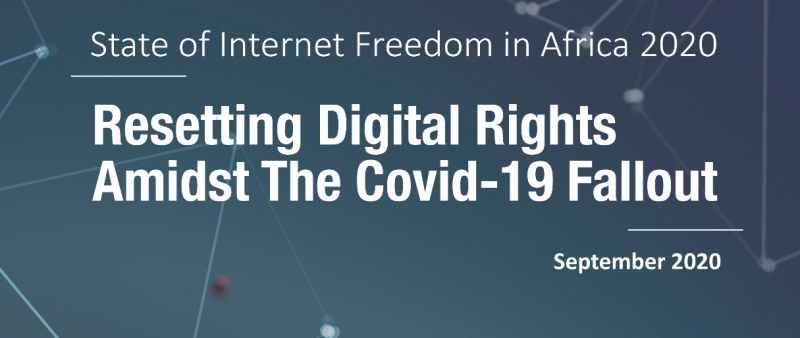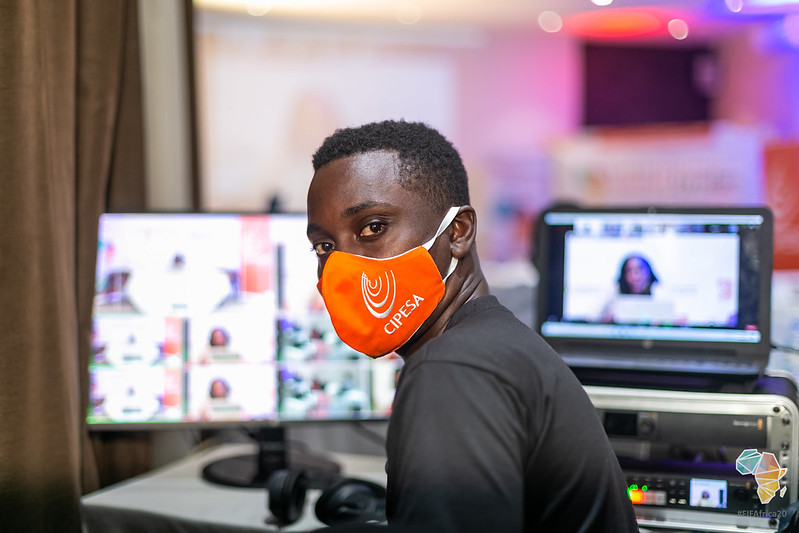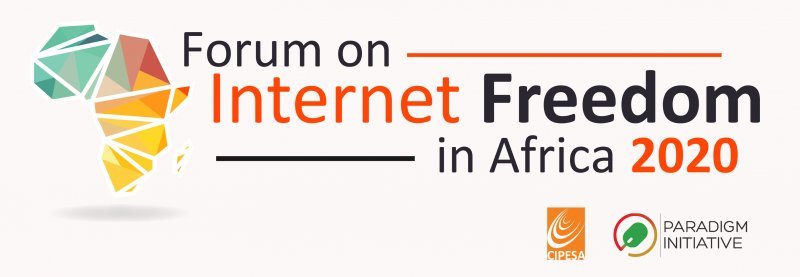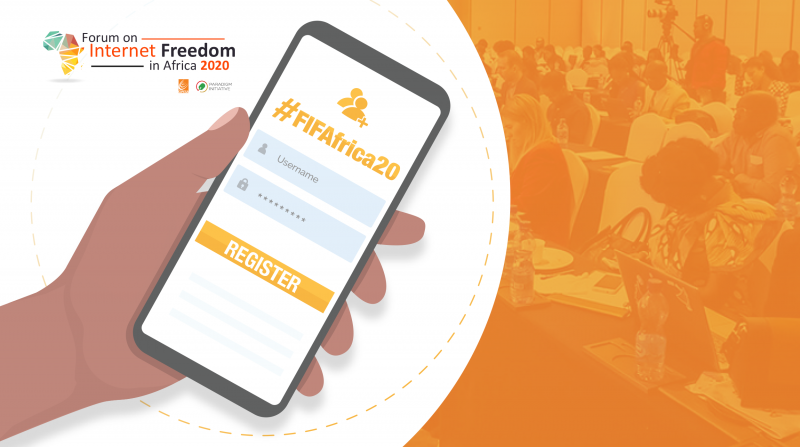Announcement |
On September 28-30, 2021, the Collaboration on International ICT Policy for East and Southern Africa (CIPESA) will host the eighth edition of the annual Forum on Internet Freedom in Africa (FIFAfrica). The Forum is a landmark event that convenes a wide spectrum of stakeholders from across the internet governance and digital rights arenas to deliberate on gaps, concerns and opportunities for advancing privacy, free expression, non-discrimination and the free flow of information online.
Taking on a hybrid approach (virtual and physical), FIFAfrica responds to rising challenges to the enjoyment of internet freedom in various African countries, including arrests and intimidation of online users, internet disruptions, digital taxes, and a proliferation of laws and regulations that undermine the potential of digital technology to drive the continent’s socio-economic and political development.
FIFAfrica, therefore, puts internet freedom on the agenda of key actors including African policymakers, regulators, human rights defenders, academia, law enforcement representatives, and the media, paving the way for broader work on advancing digital rights in Africa and promoting the multi-stakeholder model of internet governance.
Internet freedom is multi-faceted, and just like it requires to have a multiplicity of stakeholders working jointly, it also requires diversity in the voices, backgrounds, viewpoints, and thematic work areas of those that attend FIFAfrica.
In the shadow of Covid-19, FIFAfrica is an extension of our work and that of diverse stakeholders to ensure continued proactive efforts to advance effective and inclusive Information and Communication Technology (ICT) policy debates and to elevate marginalised communities and at-risk groups – including women and vulnerable minorities such as refugees, sexual minorities and persons with disabilities – in internet governance dialogues.
Content Themes At FIFAfrica21
This year, FIFAfrica will pivot around three key themes through engagements running over three days. Through carefully curated sessions and workshops, it will interrogate the deeper internet freedom layers shaping these themes as listed below.
1. Access To Information: The right of access to information especially in the online domain is coming under increased threats, including through digital taxation, network disruptions, and laws criminalising some content. Since inception, FIFAfrica has coincided with the International Day for Universal Access to Information (IDUAI) marked every September 28 so as to increase awareness on the right to information. Over the years, UNESCO, media organisations, government agencies and civil society entities have joined in to host sessions, workshops, and specialised training on the various ways in which access to information and digital rights coincide. This year, we will continue to join the global community in celebrating the integral role of this right in advancing human rights both online and offline.
2. Digital Inclusion as a means to an end for the Web We Want: The internet is public good and a basic right. However, in Sub-Saharan Africa, this is far from reality. Promoting an inclusive internet is at the core of what we do at CIPESA and is one of the reasons why we are members of the global Web We Want coalition initiated by the Web Foundation. Digital exclusion is shaped by numerous factors including disability, language, education, income, and gender.
Further, there is a growing concern that minority and marginalised communities such as refugees and persons with disabilities are being left behind in accessing information on Covid-19. This is because, despite the recent expansion in ICT usage, digital exclusion persists due to limited access and affordability of the requisite ICT tools, low digital literacy skills and shortage of content in accessible formats.
3. Key Trends in 2021 shaping the digital landscape in Africa: The various challenges that were affecting digital rights in Africa have been exacerbated by the Covid-19 pandemic. Under the guise of addressing the health concerns emerging from the pandemic, many measures introduced may have granted authoritarian regimes a blank cheque to impose unnecessary, broad and long-lasting measures that affect digital rights. However, there are some positives that have been registered with technology gaining centrality in the lives of states, persons and communities. Nonetheless, the pandemic has illuminated the unequal access to technology in African countries and FIFAfrica will delve into the trends that have emerged over the course of the year, and explore ways to address the gaps and concerns.
————————————————————————————————————————————-
How To Be A Part Of The 2021 Edition of the Forum on Internet Freedom in Africa
There are various ways in which individuals and organisations can be a part of FIFAfrica as listed below:
- Host a session (panel discussion/ workshop/ training: Is there a particular area of interest you would like to engage on? – Click here
- Contact us directly if you have an alternative approach you would like to discuss further – Email us here
————————————————————————————————————————————-
Important dates: Please note the below important dates related to participation at the Forum:
- Session proposals will be accepted till August 21, 2021
- Successful session proposals will be directly notified by August 31, 2021






